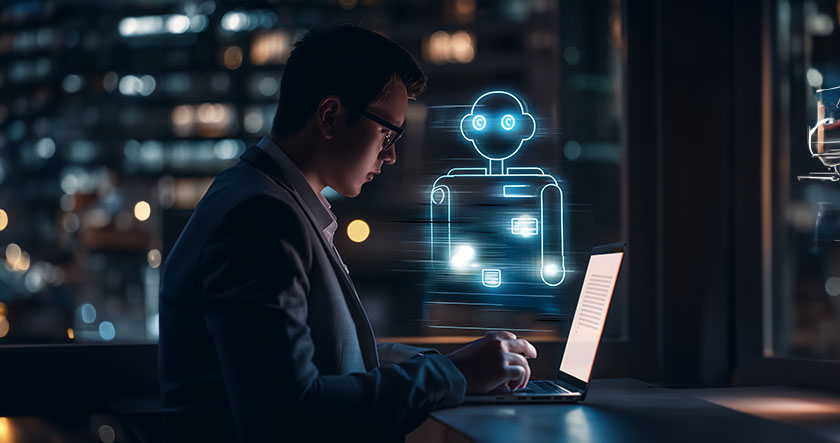Artificial intelligence (AI) and blockchain are two of the most transformative technologies of our time. AI is rapidly changing the way we work and live, from automating tasks to powering new forms of communication and entertainment. Blockchain, on the other hand, is revolutionizing the way we store and share data, creating a secure and transparent ledger system that can be used for everything from tracking financial transactions to managing supply chains.
While AI and blockchain are both powerful technologies on their own, their true potential lies in their intersection. When these two technologies are combined, they can create a new level of efficiency, security, and trust in business operations.
Improved Data Security and Transparency
One of the biggest challenges facing businesses today is data security. With the ever-increasing amount of data that businesses collect, it is more important than ever to ensure that this data is secure from hackers and other unauthorized access.
Blockchain can help to improve data security by providing a tamper-proof ledger system for storing data. Blockchain uses cryptography to create a secure chain of blocks, where each block contains a record of a transaction. Once a block is added to the chain, it cannot be changed without altering all of the subsequent blocks. This makes it very difficult for hackers to tamper with data stored on a blockchain.
In addition to improving data security, blockchain can also help to improve data transparency. Because all transactions on a blockchain are visible to all participants in the network, it creates a transparent record of what data has been added, changed, or deleted. This transparency can help to build trust between businesses and their customers.
For example, a company could use blockchain to store its customer data. This would allow customers to see exactly what data the company is storing about them and how it is being used. Customers would also be able to track any changes that are made to their data. This transparency would help to build trust between the company and its customers.
Better Predictions and Decision-Making
AI is a powerful tool that can be used to analyze data and make predictions. Businesses can use AI to identify trends, predict customer behavior, and make better decisions about everything from product development to marketing.
However, the accuracy of AI predictions is often limited by the quality of the data that is used to train the AI models. Blockchain can help to improve the quality of data used for AI by providing a secure and transparent way to store and share data.
For example, a company could use blockchain to create a secure platform for sharing customer data between different businesses. This would allow businesses to train their AI models on a larger and more diverse dataset, which would lead to more accurate predictions.
In addition to improving the quality of data, blockchain can also help to improve the trust in AI predictions. Because all transactions on a blockchain are visible to all participants in the network, it creates a transparent record of how AI models were trained and what data was used to train them. This transparency can help to build trust in the accuracy of AI predictions.
More Efficient Contracts
Contracts are a fundamental part of business. However, traditional contracts can be slow and expensive to process. They can also be prone to errors and fraud.
Blockchain can help to create more efficient contracts by providing a secure and transparent way to store and execute contracts. Smart contracts are self-executing contracts that are stored on a blockchain. When certain conditions are met, the smart contract is automatically executed.
For example, a company could use a smart contract to automate the payment process for its suppliers. When a supplier delivers goods or services to the company, the smart contract would automatically release payment to the supplier. This would eliminate the need for manual processing of invoices and payments, which would save the company time and money.
In addition to improving efficiency, blockchain can also help to reduce errors and fraud in contracts. Because smart contracts are self-executing, there is no risk of human error in the contract execution process. Additionally, because all transactions on a blockchain are visible to all participants in the network, it creates a transparent record of what happened with the contract. This transparency can help to reduce fraud.
The Future of Business
The intersection of AI and blockchain has the potential to transform businesses in a number of ways. By improving data security, making better predictions, and creating more efficient contracts, AI and blockchain can help businesses to operate more efficiently, make better decisions, and build trust with their customers.
As AI and blockchain continue to develop, we can expect to see even more innovative applications of these technologies in the business world. Businesses that are early to adopt AI and blockchain will be well-positioned to succeed in the future.







